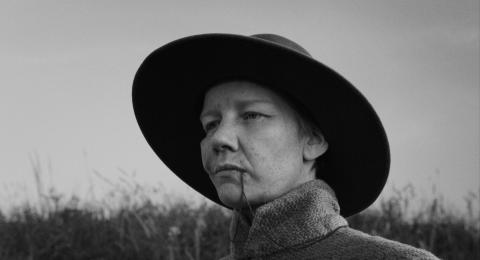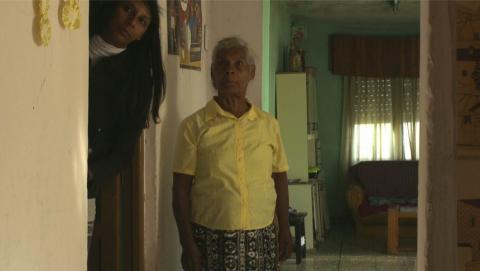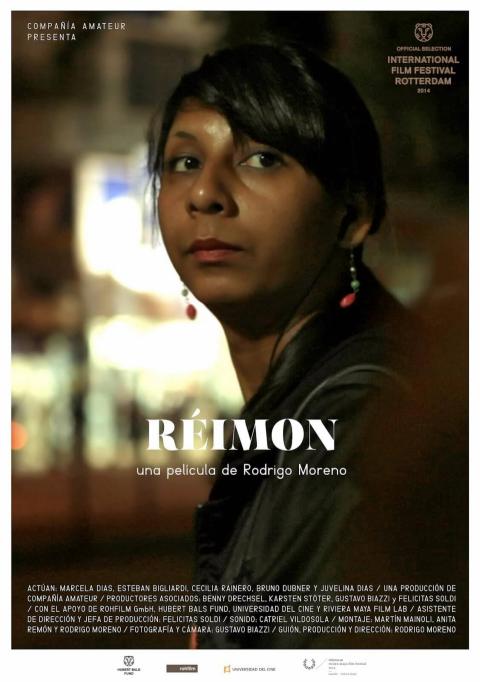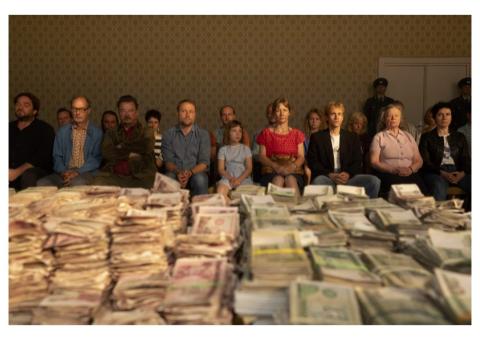director's statement
REIMON began like just another fiction film, under a rigourous planification ruled by a production plan and a detailed script, as I´ve been making in my previous works. But immediately after, during the casting stage, I realized I wanted to break those rules. I didn´t want to work with professional actors, because I didn´t want to create a representation of the poor to tell the story of a cleaning lady. I neither wanted to film the poor in a documentary-like style because that would give a folklorish idea of reality; I didn´t want to make a realistic film, my aim here was to make a film about reality.
I found Marcela Dias, the protagonist of the film, a security guard who used to work as a domestic worker in the past. Her appearance seemed to be mysterious, as if she belonged to a lost Indian caste still undiscovered. She looked timid and silent. Then I stepped out of the screenplay and started to observe her real life with a camera.
Shooting days went on and little by little I began to introduce fiction in her real life in order to give a political outlook to her world, and also to enhance in cinematic terms her ordinary life. But the reality and the ways of addressing it tend to be much less direct and rational than realism. No one knew what film we were shooting at that moment as we all got involved in a total uncertainty during the shooting. The only thing I knew was that I was interested in the harshness and luminosity of reality, and also in the silent world of someone who is most of her time alone.
On the other hand, what we were shooting was a working class woman under a very specific political sight: her working conditions now in Argentina differ very little from what Marx described in The Capital 150 years ago, and the presence of Marx´s text in the film is a way of saying “someone has already spoken about this much better than I did. Therefore, we should all listen to him.Anyway there are contradictions about this because at the same time those guys reading the texts looked like martians through Réimon´s point of view. I think her point of view is the key that allows us to immerse in her daily life. And her point of view was given only by having dived into her reality.
Of course there is a gap between us filmmakers and her, a cleaning lady, and that kind of tension is a gap among our different social classes. This aspect beats all along the film and is represented by the young people who request Ramona´s services while they spend their time to read Das Kapital. Contradictions and differences.
Now the film is, rather, a work of fiction, a fiction that interacts with reality. And this interaction makes a singular operation: it´s not a film about Marcela Dias, it´s a film about working conditions and also a film about a woman called Réimon (or Ramona), a fictional character created specially for this film.
But Marcela Dias presence fleshes out to this drama since she belongs to real life (and this fact is not hidden by the film through any trick or any magic at all). One could say that Marcela´s point of view gives substance to reality although is not a film about her. So one may conclude, among other possible conclusions, that reality in film art has nothing to do with real life. One also could affirm that Réimon is the result of that experience, the combination between previous ideas and fresh and new ones discovered during the shooting, and even during the editing.
Festivals & awards
- Spectrum - Rotterdam International Film Festival 2014
- Filmfest Hamburg 2014
Credits
STARRING
Marcela Días da Souza
Cecilia Rainero
Esteban Bigliardi
Juvelina Faustino
Bruno Dubner
writer & DIRECTOR
Rodrigo MorenoPRODUCERs
Rodrigo Moreno
Benny Drechsel
Karsten Stöter
CINEMATOGRAPHY
Gustavo BiazziEDITING
Rodrigo Moreno
Martín Mainoli
Anita RemónSUPPORTED BY
Hubert Bals Fund
Riviera Maya Film Lab
Universidad del Cine
produced by
Compañía Amateur
Rohfilm



